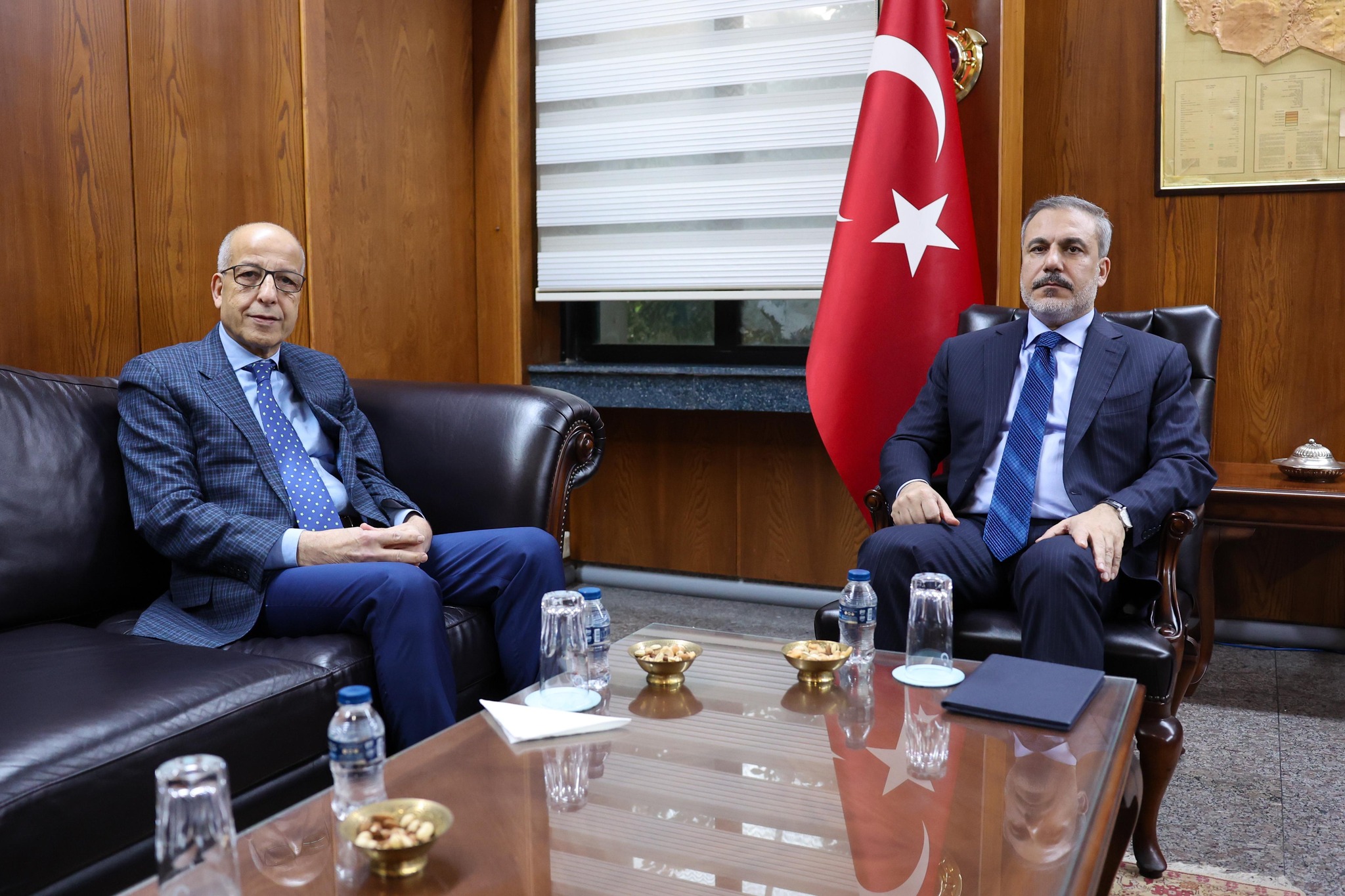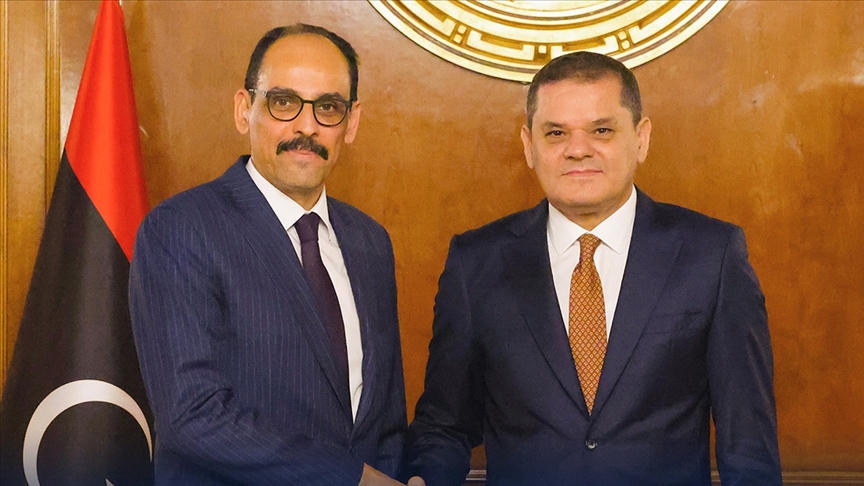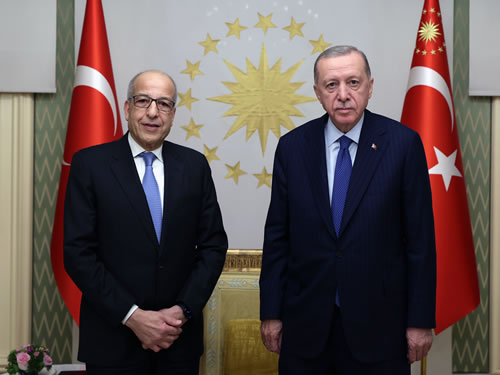Levent Kenez/Stockholm
Libya’s former central bank governor, who had held the position since 2011, fled to Turkey in August due to security concerns.
In a development seen as a consequence of the power struggle among dominant factions in Libya, Sadiq al-Kabir, governor of the Central Bank of Libya (CBL), was fired on August 22 by the Libyan Presidential Council, following an initiative led by Abdul Hamid Dbeibah, prime minister of the Tripoli-based government. The two had been publicly criticizing each other for some time. Dbeibah’s decision came after accusations surfaced that al-Kabir was mismanaging oil revenue.
However, what is particularly noteworthy is al-Kabir’s flight to Turkey, a country with which Dbeibah has strong ties. Turkish President Recep Tayyip Erdogan’s willingness to allow such a situation to exist is attributed to the communication and cooperation that al-Kabir has developed with him over the years as well as actions he has taken that favor Turkey and businessmen close to Erdogan.
In a development first reported in the Libyan media in 2020, al-Kabir met with Turkish President Erdogan in Istanbul following the UN-backed Government of National Accord (GNA)’s military victory over the rebel opposition led by Khalifa Haftar. The victory was facilitated by Turkey’s provision of weapons, ammunition and drones as well as its recruiting of Syrian mercenaries and jihadists to combat Haftar.
This meeting, held on June 29, 2020, focused on various financial matters, particularly changes in financial transfers and deposits associated with Turkish interventions in Libya. The discussions sparked controversy, with Ramzi Al-Agha, head of the Liquidity Crisis Committee at Libya’s central bank, criticizing the meeting for allegedly violating Libyan law. He emphasized that such high-level discussions should involve the prime minister and be coordinated through the Ministry of Foreign Affairs.
During these talks al-Kabir reportedly announced that approximately $8 billion would be deposited in the Turkish Central Bank, earning no interest and set to remain there for four years, in an attempt to support the stability of the Turkish lira and strengthen Turkey’s economy. According to reports in both the Turkish and Arab media, over 30 tons of gold from Libya’s central bank have also been transported to Turkey.

After 2020, al-Kabir met several times with President Erdogan and several Turkish foreign ministers. It is uncommon for the governor of a central bank to engage directly with high-level political figures in this manner since such interactions typically follow established diplomatic protocols.
It is no secret that President Erdogan sought a share of Libya’s oil revenues and privileges for businessmen close to him in exchange for military support for the Libyan government. According to reports in the Turkish press in 2020, the surprising resignation of Libyan Prime Minister Fayez al-Sarraj was attributed to Erdogan’s persistent demands.
Sedat Peker, a convicted gang leader and former ally of Erdogan, revealed that al-Sarraj found himself caught between Erdogan’s expectations and the demands of Libyan businessmen who had supported him during the civil war. Peker said these conflicting pressures ultimately led to al-Sarraj’s resignation from the UN-recognized GNA.
Meanwhile, Turkey’s main opposition Republican People’s Party (CHP) Deputy Chairman Özgür Karabat raised concerns on October 6 about predatory lending practices and unregistered transactions involving POS devices, particularly in Libya and Iraq. He highlighted that the total amount of financial misconduct, including fraudulent transactions through POS devices over the past five years has exceeded $100 billion. “An ecosystem of financial crime has been created by falsely recording gold sales in Turkey using debit cards belonging to Libyan and Iraqi citizens,” Karabat said.
Karabat also ironically pointed out the recent flight of al-Kabir to Turkey in August due to security concerns, subtly implying that his escape to Turkey was noteworthy given the ongoing financial irregularities. “Since the former governor of the Libyan Central Bank is now in Turkey, his testimony should be taken regarding these matters,” he added.

In November 2023 the American investigative and policy organization Sentry revealed that Libya has become a transit zone for smuggling gold bars to Gulf countries and Turkey as Libya does not produce significant amounts of gold but serves as a trading platform and transit point, including ports and airports in Zliten, Benghazi and Misrata.
In a 2018 UN report Turkey was implicated in arms violations as well as oil smuggling operations. According to Turkish media reports from February 2024, oil illegally imported from Libya was being sold in the domestic market. The UN Panel of Experts on Libya uncovered alarming details about the smuggling of oil occurring just off the territorial waters of Malta, with operations facilitated by ships departing from Maltese harbors.
On September 5 Erdogan’s close confidant and head of Turkish intelligence organization MİT, İbrahim Kalın, traveled to Libya to visit Dbeibah immediately after al-Kabir’s arrival in Turkey.
Libya’s central bank governor’s escape to Turkey points to Erdogan’s dubious financial dealings




